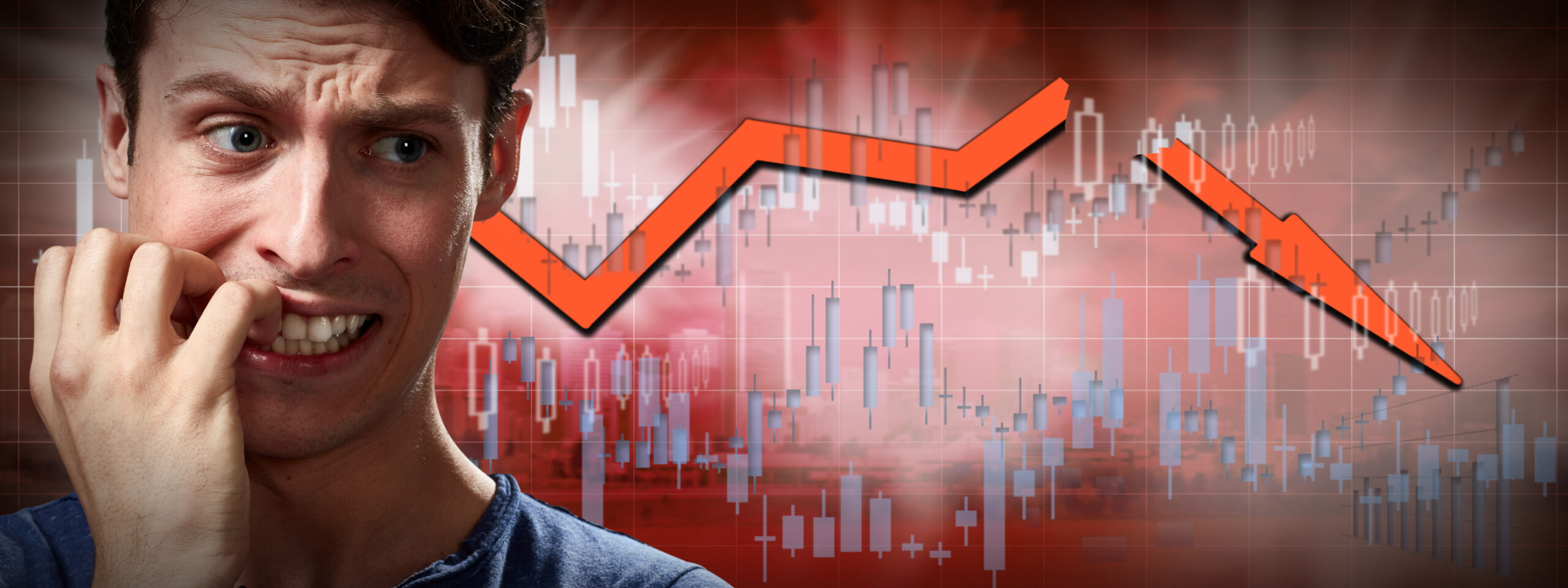You’ll often hear traders talk about “conviction” on a trade, and even mention sizing in when conviction is high.
But should conviction dictate your trading decisions?
Defining Conviction
Conviction can be defined as “a strong belief or opinion” or “the feeling of being sure that what you believe or say is true.” Now, there’s nothing wrong with having conviction when entering a trade. Often, it is conviction that causes you to take the trade in the first place. You have a strong opinion that a trade has a high probability of working in your favor, so you decide to take the trade.
However, conviction can also cause problems when taking a trade, particularly after you’ve placed the trade.
The Problem With Conviction
Because conviction represents a strong belief, that belief can cause you to overlook evidence that the trade isn’t working, or that your trade or investment thesis is not correct. You can get stuck in confirmation bias, only looking for evidence that you’re correct and ignoring evidence that you’re wrong. Perhaps you’re so convinced the trade or investment will work that you put in a ton of size on it, risking more than you usually would. Or perhaps you decide not to obey any stop losses because you have such high conviction.
In all of these examples, your conviction has simply become poor risk management and/or a choice to ignore reality. You are confusing conviction with what you want to happen. However, what you want to happen may not be what is happening. And you can watch your money bleed away before your eyes as you let your conviction overtake you.
Examples of Conviction Gone Wrong
If you’re a trader, you’ve probably had times where you were extremely convinced of a trade and then got your ass handed to you when it went against you. Or perhaps you used too much size and blew up when the trade went against you. It’s happened to me. In fact, my first downward spiral that eventually ended my first stint as a full time trader occurred after using too much size and not obeying a stop loss. This was despite having conviction that I was “right” (which I eventually was, but my timing was wrong). Also, my 50% drawdown in mid-summer 2020 came from repeatedly trying to short $GSX / $GOTU. The evidence was OVERWHELMING that GSX Techedu was a complete fraud. But that didn’t stop the markets from bidding it up to nearly $150/share. Eventually $GSX / $GOTU collapsed and now trades for under $2/share. Thus, the shorts were right about GSX being a fraud, but I was wrong on my timing. This was a case where I let my conviction of the fraud cause me to keep taking trades on it and yet I kept losing.
The $AMC apes/WSB army are also an example of conviction gone wrong. There is still a group of bagholding $AMC shareholders that are convinced that $AMC is being manipulated, that the shorts will get squeezed any day now, that $AMC is worth much more than its current value, and there’s a big conspiracy against them. Yet they ignore the evidence right in front of their eyes that they simply chased a short-term squeeze and got caught in a bubble. The $AMC insiders (like the CEO Adam Aron) have taken advantage of them and sold nearly $1 billion in stock to these bagholders.

Always Assume You Can Be Wrong, Even If You’re Convinced You’re Right
Whether you’re an investor or trader, you must always assume you could be wrong on an investment or trade, and you need to plan accordingly. This can be done through appropriate position sizing, diversification, and/or stop losses. Even if you feel there’s almost no chance of you being wrong, you still should prepare as if you could be wrong. Crazy things can happen in the markets, and you should always be prepared for a black swan event. You never want one trade or investment to wipe you out, even if your conviction is high or if the chance of something bad happening is small. If anything, you must at least account for the fact that your timing might be wrong. For example, Michael Burry was right regarding shorting the housing market, but he was early and his investors at first wanted to withdraw their capital.
For me personally, I no longer let conviction influence my position sizing or planning on a trade. I still only risk 2% of my capital per trade, even if I feel 100% certain on something. This is important, because keeping my risk at a fixed level allows me to be more objective about a trade. There’s an emotional component to conviction, and you can lose objectivity if your conviction is high. Interestingly, I’ve had some trades in the past where I didn’t have high conviction, and made great profits, and also other trades where I had high conviction, and ended up taking a loss. But in all those cases, I followed my trading plan and didn’t let my conviction level influence that plan.
I’m even starting to do long-term shorts again (despite swearing them off in the past). However, I’m much smarter about how I do them. I keep my risk fixed, I’m careful about my entry timing, and I view them as just another trade so that I don’t get emotionally involved in them. For example, I’m currently short the crypto markets through a small MSTR short and some BITO and MARA puts. My conviction is high…the crypto markets including Bitcoin & Ethereum are an unsustainable bubble, there’s massive systemic risk, and there is limited upside with tons of downside for a variety of reasons (including negative sum ecosystem for investors, lack of widespread use cases beyond speculation, extreme leverage, Tether fraud, and unsustainable energy consumption…you can read my reasons in more detail here, here, here, and here…also read the link list towards the end of the first one). However, despite my high conviction, I still use the same position sizing and risk management that I would do for any other trade. This keeps me stoic and indifferent about the eventual outcomes of these trades. Also, while I’m 100% certain I’m right about what will eventually happen to crypto long term, I can’t be 100% certain about the timing so I still need to manage risk.
Signs that Conviction Might End Up Blinding You
- You don’t have any risk management in place. This could be not having a stop loss or using too much size in a trade or investment.
- You think you can’t be wrong. No matter how convinced you are, remember that there still may be chance you’re wrong (remember the potential for Black Swan events), especially if you’re ignoring evidence contrary to your trade/investment thesis (more on this later). Also, remember that even if you’re 100% right on a trade or investment thesis, your timing could still be wrong. For example, if you’re convinced something is a fraud, remember that frauds can go on for long periods of time. Bernie Madoff’s fraud went on for 16 years, despite some people calling fraud in the 1990’s. The Wirecard fraud went on for 8 years, despite some journalists calling fraud very early on. Also, remember that the market can stay irrational longer than you can stay solvent. Bubbles, pump & dumps, and irrational market behavior can last much longer than you think they can.
- You ignore or dismiss evidence contrary to your trade or investment thesis. This can be as simple as ignoring the price action telling you you’re wrong on your timing. Or, for a longer term trade or investment, it might mean ignoring evidence of problems with the trade or investment. For example, the $AMC apes have long ignored the massive insider selling, or have ignored the facts that their concepts of “naked shorts” are simply wrong. Or, I’ve seen crypto critiques dismissed as “FUD” despite very strong evidence of numerous issues within the crypto ecosystem (such as the Tether fraud).
- Your identity is getting wrapped up in your investments or trades. For example, the $AMC apes have their own website like it’s a club. Or there’s the recent trends on Twitter for Bitcoin investors to have “laser eyes” in their profiles, or ethereum investors to add “.eth” to their Twitter names. Letting your identity become your investments or trades is a sure- fire way to lose objectivity about those investments or trades.
- You get defensive and take it personally when someone criticizes your investment or trade thesis. I’ve had people personally attack me whenever I’ve criticized OTC pump & dumps, individual stocks like TSLA/AMC/GME, crypto, or anything else. Or how about some TSLA shareholders that took to Twitter to abuse Missy Cummings who has long been a critic of TSLA’s FSD program.
- You get emotional with every swing of your investment or trade, and spend too much time watching it. Good traders/investors tend to be more stoic regarding how their positions go.

Would You Rather Be Right, or Would You Rather Make Money?
If you’re more focused on being “right” about your trade or investment, then that’s a sign that you’ve let conviction overtake you. Every trade or investment should just be one among many trades or investments. Don’t place too much importance on any particular one. Also, don’t get so caught up in trying to be right that you end up losing too much money if things go south on you. One hallmark of any good trader or investor is risk management. For traders, that means cutting losses when they’re small and not taking position sizes that are too big. For investors, that means staying well diversified, not sinking too much into any one investment, “knowing what you own” (and I mean truly knowing it…a lot of people think they know what they own but really only have a surface level of knowledge), and paying attention to your original investment thesis and being open to change your mind if that thesis might be invalidated.
Prepare, perform, profit, my friends…
DISCLOSURE: In addition the long dated MARA/BITO puts and MSTR short mentioned earlier, I have a small long term TSLA short and SARK (short ARKK fund) long.





